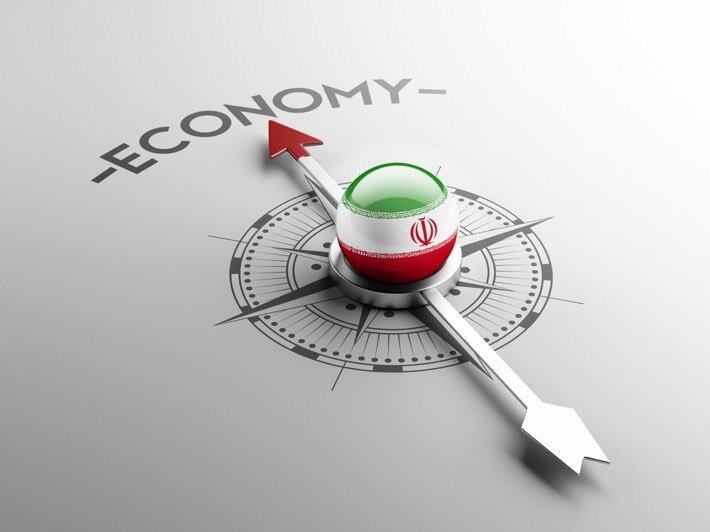TEHRAN – In a recent commentary the Washington Post said “President Biden is walking a geopolitical tightrope on Iran.”
For weeks after his inauguration, the White House and the Iranians seemed to be locked in a staring contest, waiting for the other party to make the first move to restart diplomacy after the turbulence of the past few years, according to the Post.
Although Joe Biden is keen to salvage the 2015 nuclear agreement between Iran and world powers, he is already facing pushback from regional allies in West Asia and Republicans at home over making possible concessions to Tehran.
Pointing to Iran’s measures to put an end to the economic sanctions, the American newspaper writes, “Iranian officials have demanded an end to the economic sanctions levied on their country by former President Donald Trump. His move was widely considered a breach of the terms of deal UN inspectors say was working in maintaining limits on the Iranian nuclear program. Chafing under sanctions, Iran began enriching uranium at levels higher than what’s permitted by the deal.”
The Post stressed that the principlists view new diplomacy with the United States as a dead end.
“On (last) Tuesday, a law barring UN inspectors from Iranian nuclear sites was supposed to go into effect — a move certain to escalate tensions further with the West. But a weekend of shuttle diplomacy carried out by the head of the UN’s atomic agency appears to have created some breathing room,” the paper stated.
“Under vague terms of the deal announced Sunday (Feb. 21), Iran would still end implementation of what is known as the Additional Protocol, which enforces monitoring by the International Atomic Energy Agency (IAEA), but would continue to allow what Rafael Grossi, the agency’s head, called ‘necessary monitoring and verification of Iran’s nuclear program,” the newspaper says.
“The hope of the IAEA has been to be able to stabilize a situation which was very unstable and I think this technical understanding does it so that other political consultations at other levels can take place,” Grossi told reporters in Vienna.
Regarding diplomatic efforts made by Biden’s administration, the Washington Post argues, “Those consultations are now getting underway. Last week, the Biden administration effectively pulled the plug on the Trump administration's maximum pressure’ campaign by signaling its willingness to engage in informal talks on Iran with European allies. That would be the start of a delicate diplomatic dance that would choreograph Iran scaling back some of its nuclear activities alongside sanctions relief. There’s no clear timeline for any of this, but a pathway toward an entente has now opened.”
The Post pointed that the Biden administration has taken several steps to persuade Iran to negotiate over its nuclear programs, writing, “The Biden administration has already made small technical moves at the United Nations to help reset the table. They lifted restrictions placed on Iranian diplomats in New York and rescinded the Trump administration’s 2020 assertion — rejected even then by the U.S.’s European allies — that all UN-mandated sanctions on Iran were in place. Glimmers of a broader thaw could be seen in South Korea’s decision Monday to unfreeze a significant sum of Iranian money blocked in its banks because of U.S. financial sanctions.”
In both Washington and Tehran, though, there’s plenty of opposition. On Monday, after Grossi’s departure, Iran’s parliament condemned the new agreement with the IAEA.
Biden’s domestic opponents see the current course as a misguided abandonment of leverage over the Iranian government. For instance, Mike Pompeo, the former secretary of state, told the far-right Washington Free Beacon on Thursday, “I led a response to the Iranian threat that protected the American people from its terror and supported the Jewish state of Israel,” claiming, “Adopting the European Union model of accommodation will guarantee Iran a path to a nuclear arsenal.”
During a Monday press call hosted by the European Leadership Network, Ali Vaez, Iran project director of the International Crisis Group, noted, “The irony of the situation is that we almost have a mirror image in Tehran and Washington.”
“You have two governments who would have loved to restore the [nuclear deal] status quo ante with a push of a button if they could but they have to deal with parliamentary opposition which reflects broader political resistance to the deal,” he added.
The Trump administration’s “maximum pressure” campaign may have exacted a deep economic toll. But the reimposition of U.S. sanctions failed to achieve many of Pompeo and Trump’s stated goals; the United States and its partners look no closer to extracting greater concessions from the Iranian government than what was achieved in 2015, and Iran is theoretically closer to pushing toward a nuclear weapon than before Trump took office.
Also, Ellie Geranmayeh of the European Council on Foreign Relations told Today’s WorldView, “Leverage only makes sense if you use it at the right time and for Washington right now, the leverage card is somewhat exhausted.”
The Iranian government has been able to “retool” its economy under sanctions and “immunize itself from an economic collapse as proponents of maximum pressure had hoped for,” he added.
The leverage Biden has is “not in the form of Trump sanctions,” Vaez told Today’s WorldView, but rather the “now proven ability of the United States to turn the switch on and off on its own to great effect on the Iranian economy. And this leverage would exist a year from now or two years from now, whenever needed.”
TAGS


No comments:
Post a Comment